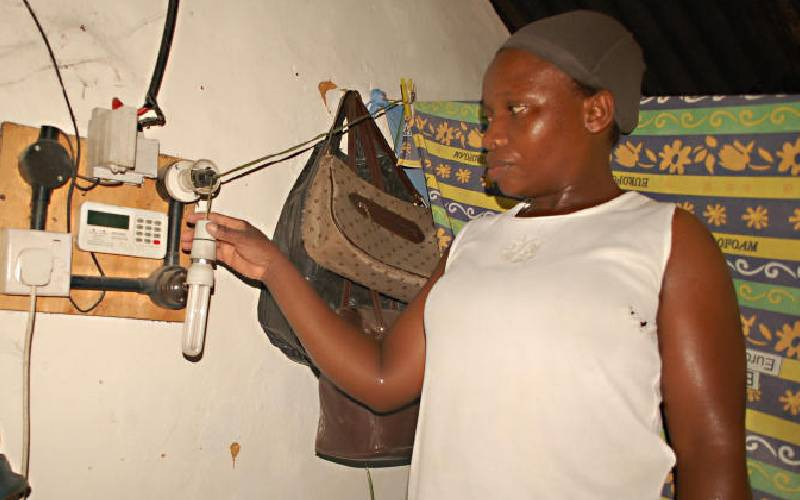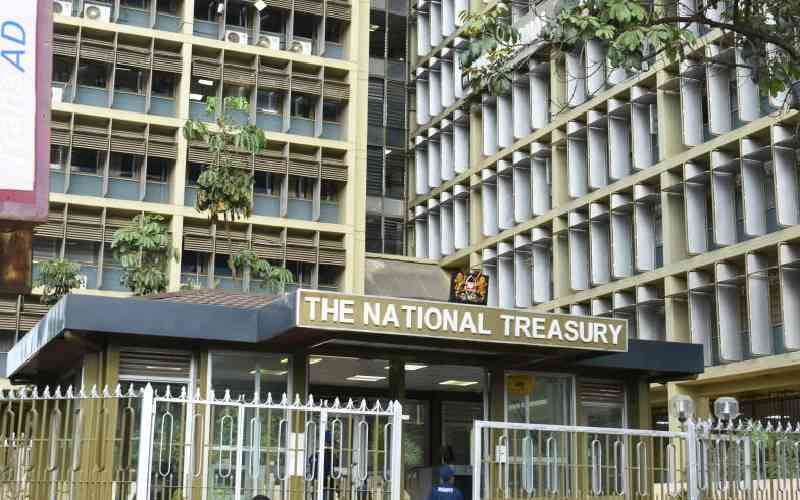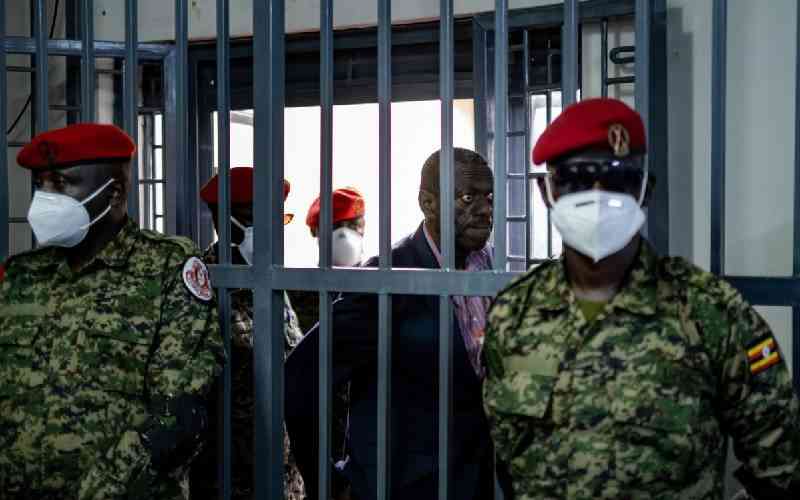
The High Court has ordered Kenya Power Company (KPLC) to pay a company Sh50 million for trespass.
KPLC erected electric poles with high voltage electricity lines of 66KV on Cape Suppliers Limited’s land without consent.
Cape alleged that the action by KPLC destroyed their land causing irreparable damage.
“It is therefore my finding and I so hold that the defendant trespassed onto the plaintiff’s suit land and the trespass is continuing,” said Justice Jacqueline Mogeni.
Justice Mogeni said that it would be impractical to order KPLC to move the power lines but noted that they pose danger to the people carrying out activities under them.
“Removal of the power line on the section being claimed will incapacitate the whole line and cause untold suffering to the populace and the public facilities along the line,” she said.
Cape Suppliers Limited Director Kinaro Kibanya said that they acquired the land in 2008 and it has 350 apartment units and they had approvals to put in a further 80 units and another 241 and nine shops.
Kibanya told court that they sought Sh637 million which was arrived after valuation which placed the figure at Sh1.6 billion as of 2019.
He told court that when they acquired the land KPLC had already erected the power lines.
Surveyor Wilson Ndirangu told the court that the land which is located in Bahati, Nairobi county, had two portions that were not captured in the survey maps.
He added that from the map, there aren’t any indicated way leaves.
KPLC’s Wayleave Officer Charles Wagana testified that the power lines were erected around 1970 after approvals from Nairobi City Council and the then Director of Survey.
He said that power lines are along the river bordering the said property.
KPLC surveyor Joseph Kipng’etich said that the power lines were constructed as per approvals on the riparian reserve but the company does not own the land.
Stay informed. Subscribe to our newsletter
Justice Mogeni held that the activities under the power line were disaster waiting to explode and Kenyans should not see a repeat of the Embakasi gas plant explosion incident.
“In my view, the justice of the case is that the defendant (KPLC) be given time to negotiate appropriate wayleave agreement/rights of way with the plaintiff (Cape) as provided for by the law,” said the Judge
Cape argued that due to the powerlines, they could not develop the Sh266 million land.
They claimed that they had intended to construct additional apartment units and shops for Sh660 million and they lost an opportunity to make Sh53 million annually from rent.
Cape further claimed that for the seven years the power lines have been in place they projected to have lost Sh372 million in rental income.
They said that they had made demands to KPLC to cease trespass in vain.
In defence, KPLC said that there are way leaves that have been set aside all over the country by the government for public power infrastructure.
The power utility firm denied trespassing saying that they could not compensate Cape since they were the ones that had interfered with KPLC’s right to use and enjoy proprietary rights by encroaching on way leaves.
KPLC sought to have the case struck out arguing that the High Court did not have the jurisdiction to hear the matter and it is a preserve of either the Energy and Petroleum Regulatory Authority or the Energy Petroleum Tribunal.
They claimed that the demands by Cape in the case were akin to fraud since they do not own the land and if they had any certificate of ownership then the same was issued irregularly.
KPLC accused Cape of filing a false and scandalous verifying affidavit, forging documents, seeking to obtain court orders through false allegation and seeking compensation by false pretense.
Cape denied interfering with KPLC's right to quiet enjoyment since they did not own the said piece of land.
The firm said that the approval for KPLC was for the erection of power lines on public land not private as was the case which required the consent of the property owner.
Cape denied their land was on a way leave saying none has ever existed there and any creation of one must be done lawfully in line with the Land and Energy Acts.
 The Standard Group Plc is a
multi-media organization with investments in media platforms spanning newspaper
print operations, television, radio broadcasting, digital and online services. The
Standard Group is recognized as a leading multi-media house in Kenya with a key
influence in matters of national and international interest.
The Standard Group Plc is a
multi-media organization with investments in media platforms spanning newspaper
print operations, television, radio broadcasting, digital and online services. The
Standard Group is recognized as a leading multi-media house in Kenya with a key
influence in matters of national and international interest.
 The Standard Group Plc is a
multi-media organization with investments in media platforms spanning newspaper
print operations, television, radio broadcasting, digital and online services. The
Standard Group is recognized as a leading multi-media house in Kenya with a key
influence in matters of national and international interest.
The Standard Group Plc is a
multi-media organization with investments in media platforms spanning newspaper
print operations, television, radio broadcasting, digital and online services. The
Standard Group is recognized as a leading multi-media house in Kenya with a key
influence in matters of national and international interest.









